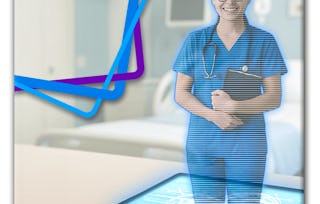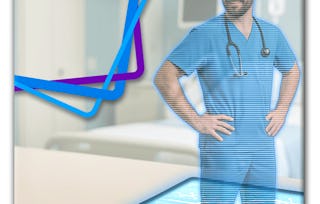This 7-week course provides you with key strategies to help understand the foundation of Clinical Simulations. During each module, you will learn about 7 key components of Clinical Simulation Across the Health Professions and its' impact in your current position as a healthcare professional. Please utilize all of the Resources provided by each of the modules to support and enhance your understanding of each concept. You will learn about the following topics in this course:

Essentials in Clinical Simulations Across the Health Professions
Seize the savings! Get 40% off 3 months of Coursera Plus and full access to thousands of courses.

Essentials in Clinical Simulations Across the Health Professions



Instructors: Pamela R. Jeffries
26,698 already enrolled
Included with
1,224 reviews
Recommended experience
Details to know

Add to your LinkedIn profile
29 assignments
See how employees at top companies are mastering in-demand skills

There are 7 modules in this course
Instructors



Offered by
Explore more from Healthcare Management
 Status: Free Trial
Status: Free Trial Status: Free Trial
Status: Free Trial Status: Free Trial
Status: Free Trial Status: Free Trial
Status: Free Trial
Why people choose Coursera for their career

Felipe M.

Jennifer J.

Larry W.

Chaitanya A.
Learner reviews
- 5 stars
80.22%
- 4 stars
17.32%
- 3 stars
2.12%
- 2 stars
0.32%
- 1 star
0%
Showing 3 of 1224
Reviewed on Mar 30, 2021
It was really beneficial. All the modules were very interesting. It was easy to follow the videos. Every modules increased the curiosity specially the questionnaire. Thank you very much
Reviewed on May 26, 2020
This course was extremely helpful for the beginner to learn information about clinical simulations. The content was easy to follow and the quizzes were a great assessment. I enjoyed this class!
Reviewed on Feb 25, 2021
Great course!Some of the web links and references did not work. I could not access the information that I was supposed to . This course covered everything in detail!

Open new doors with Coursera Plus
Unlimited access to 10,000+ world-class courses, hands-on projects, and job-ready certificate programs - all included in your subscription
Advance your career with an online degree
Earn a degree from world-class universities - 100% online
Join over 3,400 global companies that choose Coursera for Business
Upskill your employees to excel in the digital economy





